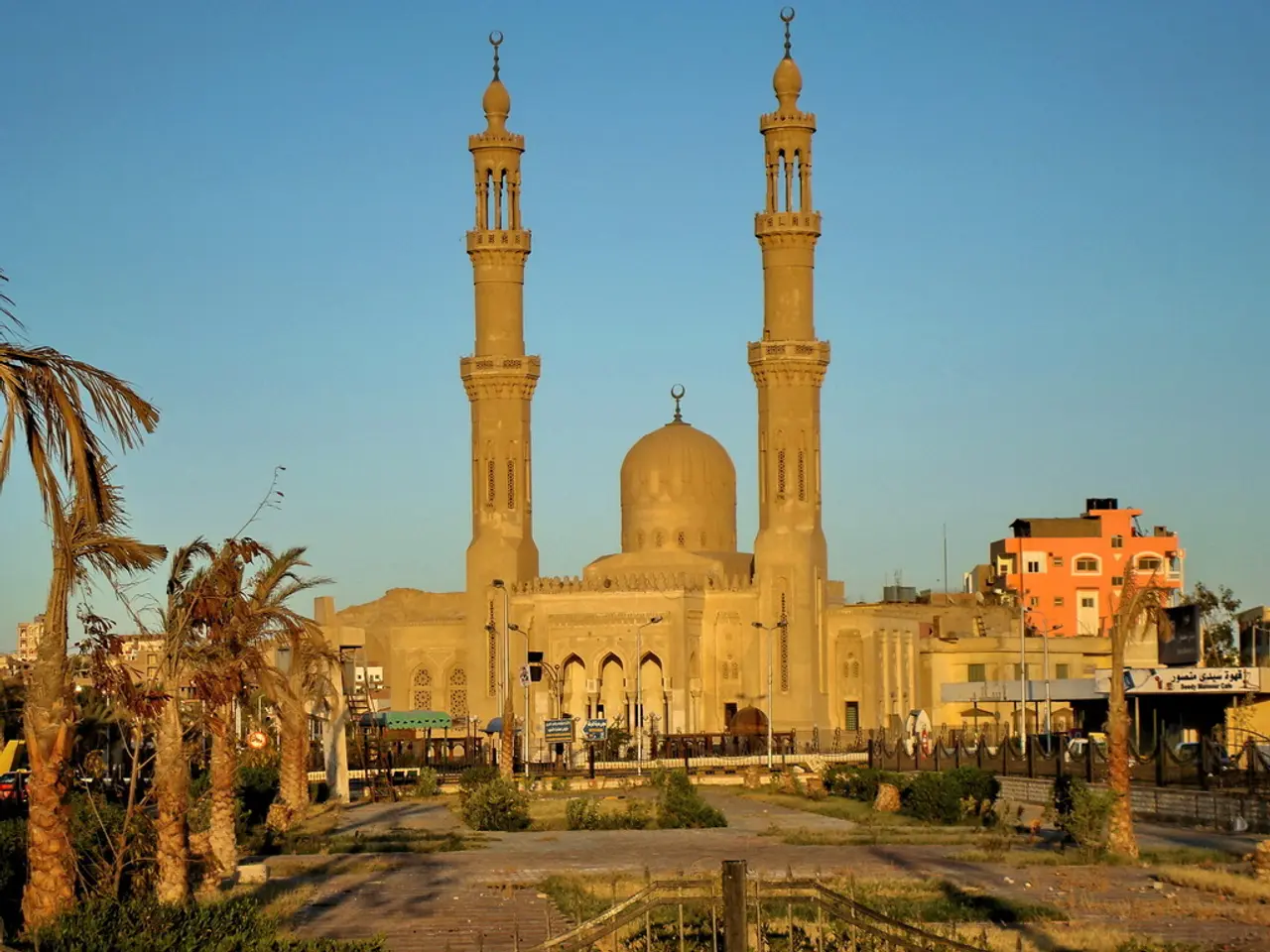Discourse among Politicians Regarding Prospective Conflict in the South Caucasus
In a recent development, a nuclear facility in Iran has experienced a leak, causing concern for Russia and potentially impacting Iran's trade routes. Simultaneously, the geopolitical landscape of the South Caucasus is shifting, with the Zangezur Corridor project gaining momentum.
The Zangezur Corridor project, a 32-kilometer stretch of railway, oil and gas, and optical fiber infrastructure on Armenian territory, aims to connect Azerbaijan with Nakhichevan. This project, as reported by various sources, is seen as a significant U.S.-backed geostrategic initiative, bypassing Russia and Iran and creating a new regional trade and transport route in the South Caucasus.
Iran's concerns about the Zangezur Corridor are acute, with Tehran perceiving it as a potential geopolitical earthquake. The corridor, if realised, could sideline Iran from Eurasian trade and energy routes, reduce its strategic depth, cause substantial economic losses, and establish a permanent U.S. and NATO presence in the South Caucasus, effectively encircling Iran from the north.
Ali Akbar Velayati, an advisor to Iran's supreme leader on international affairs, has stated that Tehran will not tolerate foreign military presence near its borders. His statement, primarily directed at Turkey, which Iran considers the main initiator of the Zangezur Corridor project, indicates Iran's growing concern about geopolitical shifts in the South Caucasus region.
In response to the nuclear facility leak in Iran, Russia has introduced round-the-clock radiation level monitoring. The potential impact of the leak on Iran's trade routes and regional influence is a significant concern for Russia.
Experts believe that Iran's preparedness to use force to protect its interests in the South Caucasus, as indicated by Velayati's statement, underscores Tehran's apprehensions about the Zangezur Corridor project and its potential threat to Iran's national security.
The geopolitical situation in the South Caucasus is thus marked by a complex interplay of strategic interests, with the Zangezur Corridor project and the nuclear facility leak in Iran serving as key points of contention. The unfolding events highlight the need for careful navigation of regional tensions and the maintenance of peace and stability in the South Caucasus.
[1] "Zangezur Corridor: US-Backed Geostrategic Initiative in South Caucasus". The Diplomat. (Date of publication not provided)
[2] "Zangezur Corridor: A New Regional Trade and Transport Route in the South Caucasus". Eurasianet. (Date of publication not provided)
[3] "Iran Fears Zangezur Corridor as a Geopolitical Threat". The Caucasus Post. (Date of publication not provided)
[4] "Zangezur Corridor: A Strategic Shift in the South Caucasus". Middle East Eye. (Date of publication not provided)
[5] "Iran's Concerns Over Zangezur Corridor and Its Impact on National Security". Caucasus Accents. (Date of publication not provided)
Read also:
- Court petitions to reverse established decision on same-sex marriage legalization
- Trump's enforcement actions in Washington D.C.: Insights from the political arena
- Chinese Ambassador issues stern message to India regarding Trump's tariffs in midst of escalating trade feuds
- Aircraft collides with another one on the runway during landing at Montana airport, igniting flames







